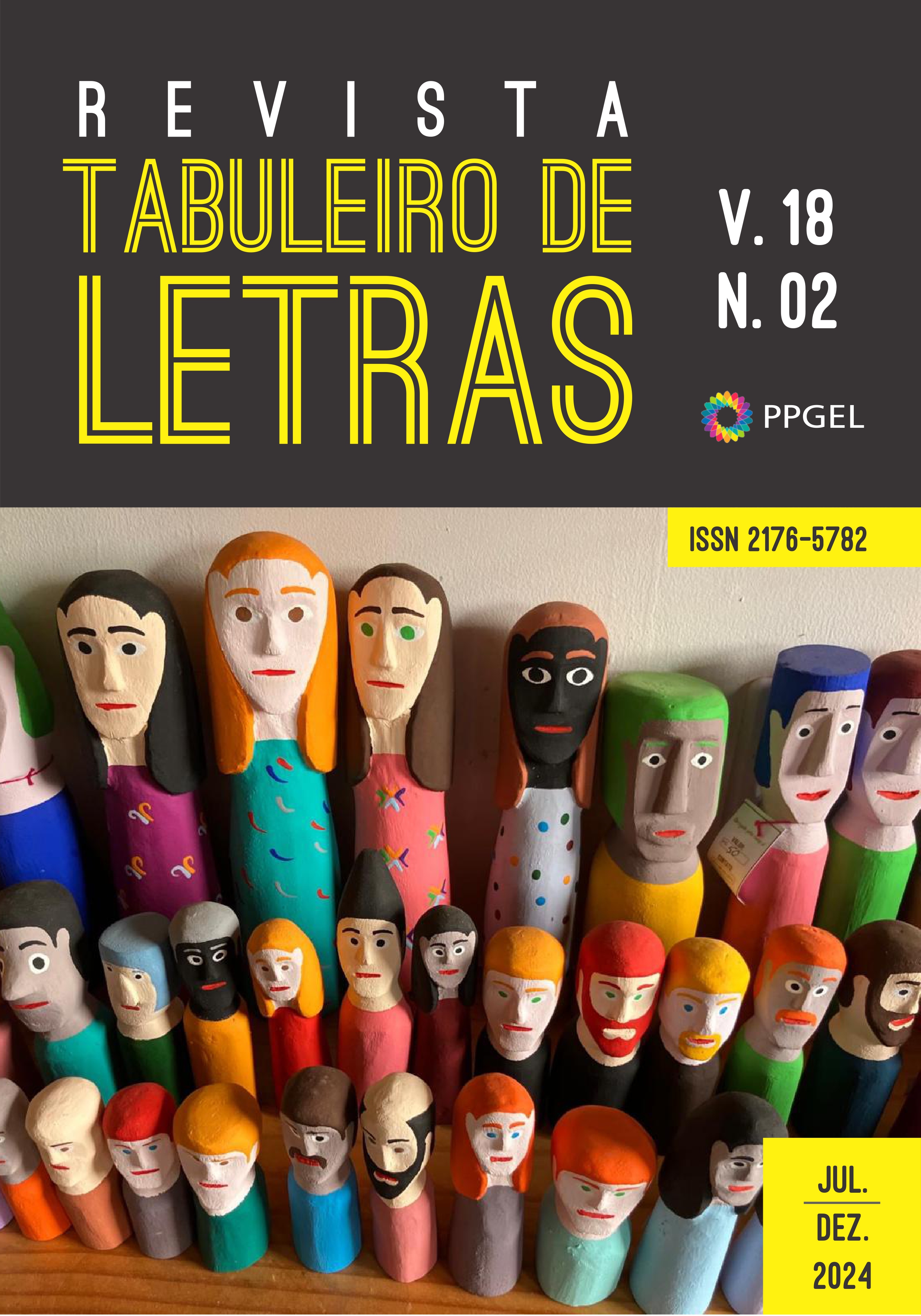Metáfora, metonímia e cognição
um percurso da retórica à semântica cognitiva
DOI:
https://doi.org/10.35499/tl.v18i2.21589Abstract
From the starting point of rhetoric, this paper will present a theoretical path in regard to the notions of metaphor and metonymy in order to highlight some questions that are relevant to the discussion involving such concepts in the field of linguistics, e.g. (1) the classic pragmatic approach based on conversational implicatures (Grice, 1975), (2) the neo-Gricean pragmatic branch of relevance theory (Sperber and Wilson, 1995), and (3) the paradigm of cognitive linguistics (Lakoff and Johnson, 1980). Our aim is to begin with the perspectives that adopt a categorical distinction between the domains of semantics and pragmatics, in order to situate the discussion employed by the cognitivist model in regard to relations between metaphor, metonymy and cognition. Furthermore, we will see how the cognitive component may be addressed differently depending on the assumed theoretical paradigm.
Downloads
References
BECHARA, E. Gramática escolar da língua portuguesa. 2. ed. Rio de Janeiro: Nova Fronteira, 2010.
CHOMSKY, N. Syntactic Structures. Berlin/New York: Mouton de Gruyter, 1957.
FERRARI, L. Introdução à linguística cognitiva. São Paulo: Editora Contexto, 2011.
FERREIRA, M. Semântica - uma introdução ao estudo formal do significado. São Paulo: Editora Contexto, 2022.
FERREIRA, M. Pragmática - significado, comunicação e dinâmica contextual. São Paulo: Editora Contexto, 2023.
FODOR, J. The Modularity of Mind: An Essay on Faculty Psychology. [s.l.] MIT press, 1983.
GRICE, P. Logic and Conversation. Em: COLE, P.; MORGAN, J. (Eds.). Syntax and Semantic: Speech Acts. New York: Elselvier Academic Press, 1975. v. 3p. 41–58.
LAKOFF, G.; JOHNSON, M. Metaphors we live by. Chicago: University of Chicago Press, 1980.
LENZ, P. Semântica Cognitiva. Em: FERRAREZI JUNIOR, C.; BASSO, R. (Eds.). Semântica, Semânticas: uma introdução. São Paulo: Contexto, 2013.
REBOUL, O. Introdução à retórica. Tradução: Ivone Castilho Benedetti. São Paulo: Martins Fontes, 2004.
SPERANDIO, N. E. O papel do processo metonímico no contexto da linguística cognitiva na criação de categorias conceituais. Fólio. Revista de Letras, v. 13, n. 2, p. 289–308, 2021.
SPERBER, D.; WILSON, D. Relevance. Communication and Cognition. 2. ed. Oxford/Cambridge: Blackwell Publishers, 1995.
SPERBER, D.; WILSON, D. A deflationary account of metaphors. The Cambridge Handbook of Metaphor and Thought, v. 84, p. 105, 2008.
TENDAHL, M.; GIBBS JR, R. Complementary perspectives on metaphor: Cognitive linguistics and relevance theory. Journal of Pragmatics, v. 40, p. 1823–1864, 2008.
WILSON, D.; CARSTON, R. Metaphor, Relevance and the ‘ Emergent Property ’ Issue. Mind & Language, v. 21, n. 3, p. 404–433, 2006.
Downloads
Published
How to Cite
Issue
Section
License
Autor(es) conservam os direitos de autor e concedem à Revista o direito de primeira publicação, com o trabalho simultaneamente licenciado sob a Licença Creative Commons Attribution que permite a partilha do trabalho com reconhecimento da autoria e publicação inicial nesta Revista.

















